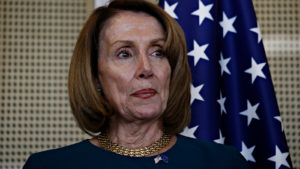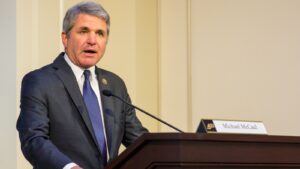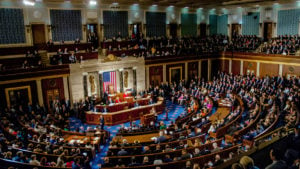As the political storm rages on around ByteDance’s TikTok in the United States, investors are eyeing the potential turbulence ahead. With President Joe Biden’s recent Executive Order 14034 looming over TikTok’s future, the markets are buzzing with speculation. In this intricate dance of power and profit, one company stands to gain significantly — Meta (NASDAQ: META) — as some key politicians have stakes in the game.
The Meta Advantage
Should a complete ban on TikTok materialize, Meta shareholders stand to benefit tremendously. The removal of TikTok from U.S. soil would neutralize Meta’s biggest rival, potentially diverting a substantial chunk of TikTok’s projected 2024 ad revenue of $18.5 billion back to Meta’s coffers. In 2023, Meta’s ad revenue paled in comparison, amounting to “just” $13 billion. The shift in ad spending could mean a windfall for Mark Zuckerberg and company, bolstering Meta’s market presence and bottom line.
While the legal battle between TikTok and U.S. authorities unfolds, a revealing spectacle is brewing behind closed doors. Three influential politicians, who are also Meta shareholders, are at the heart of the TikTok ban saga, raising questions about potential conflicts of interest and ethical conduct among lawmakers.
Nancy Pelosi: The Strategic Player

One of Congress’s most prolific stock traders, Nancy Pelosi, strategically holds Meta shares. In a unique move, Pelosi transferred 5,000 shares to her non-profit organization in 2021, a maneuver that sheds light on her calculated approach to investments. Her intricate web of stock holdings, including Meta, Nvidia, Netflix, and Google, underscores her financial acumen and timely trades.
Pelosi’s involvement in advocating for the TikTok ban reflects her proactive stance on national security and market dynamics. Her influence and astute maneuvers in both legislative and financial realms make her a force to reckon with in the ever-evolving landscape of politics and investments.
Michael McCaul: The Family Investor

House Republican Michael McCaul’s foray into Meta stock ownership is marked by family investments, with his spouse engaging in multiple purchases of Meta shares in recent months. While McCaul’s personal holdings span private investment funds and traditional stock picks like Uber, Occidental Petroleum, and Citigroup, his family’s Meta investments hint at a strategic move to capitalize on potential market shifts.
McCaul’s vocal support for the TikTok ban underscores his commitment to national security and aligns with the bipartisan efforts to address the perceived threats posed by foreign-controlled entities like TikTok. His involvement in shaping policy and navigating financial waters unveils the intricate interplay between politics and investments in today’s dynamic landscape.
Markwayne Mullin: The Early Bird

Republican Senator Markwayne Mullin’s timely investment in Meta showcases his keen foresight and proactive approach to capitalizing on emerging market trends. With a swift entry into Meta stock early in the year, Mullin’s calculated move could yield dividends as the TikTok ban unfolds. His strategic trades in companies like Nvidia and his unconventional foray into municipal bonds illustrate his versatile investment portfolio and risk-taking appetite.
Mullin’s involvement in the TikTok ban debate, coupled with his dynamic investment strategies, sheds light on the intricate balance between policy-making and financial acumen. His journey through the complex terrain of politics and investments offers a glimpse into the evolving landscape of power and profit.
On this tumultuous stage where politics and profits collide, investors are urged to navigate with caution and vigilance. As the TikTok ban saga unfolds, the interplay between market dynamics and political maneuvers will continue to shape the landscape of investments and governance.


